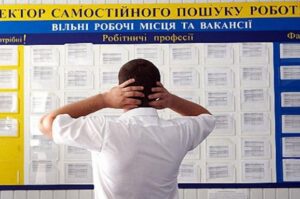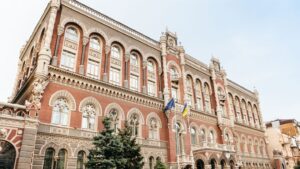
The Ukrainian naval forces took part in the initial planning conference for the training of the Turkish Navy Dogu Akdeniz 2021 (Eastern Mediterranean – 2021), which is to be held in the Western Mediterranean at the end of the year, the press service of the Ministry of Defense reported.
According to the command of the Naval Forces of the Armed Forces of Ukraine, the participants of the event considered the issues of defining the general concept of training, agreeing on the previous composition of the forces, it is planned to involve. Representatives of the Ukrainian Navy discussed the format of the participation of the Ukrainian side, in particular, the involvement of officers of the Ukrainian Navy in the multinational headquarters of the exercises, as well as the training of officers onboard the Turkish Navy corvettes of the ADA class (MILGEM) during their training.
In connection with the COVID-19 pandemic, an inception planning conference for the aforementioned training took place online.

The European Union (EU) has invested EUR 1 billion in vaccine research and EUR 2.9 billion in expanding production capacity, the press service of the German Embassy in Kyiv said. “The study now needs support to protect the world from new strains of viruses. At the same time, Germany is also helping within the EU. The EU has already invested EUR 1 billion in vaccine research and EUR 2.9 billion in expanding production capacity,” the message reads.
The press service noted that the rapid development of vaccines against COVID-19 became possible thanks to international scientific cooperation.
“One example is the BioNTech/Pfizer vaccine, which was the first to be registered in the EU. The German married couple of researchers Ozlem Tureci and Professor Ugur Sahin and their team developed a vaccine in Germany in a very short time with funding from the federal government,” the press service said.

Euroins Ukraine insurance company (Kyiv) in January-March 2021 attracted about UAH 165 million in insurance premiums, which is 88% more than in the same period in 2020.
According to the insurer’s press release, the main areas of the company’s work, as in 2020, remain car insurance and voluntary medical insurance – the most popular and demanded services on the conventional insurance market of Ukraine.
According to the company, premiums collected on compulsory motor third party liability insurance (OSAGO) for the first quarter amounted to UAH 47.4 million, which is 45% more than in the same period a year earlier, voluntary car insurance (KASKO) – UAH 23.2 million (a rise of 47%), and voluntary medical insurance – UAH 34 million (2.5 times more).
In addition, the company was able to ensure a high dynamics of premiums in other areas of activity. Thus, property insurance increased 4.6 times, insurance against fire risks – 2.5 times, against accidents – 2 times, third party liability insurance grew by 52%.
During the first quarter of this year, Euroins Ukraine paid out more than UAH 37 million to customers, which is 42% higher than in the first quarter of 2020. On average, the company pays its clients UAH 400,000 in compensations every day.
“In 2021, Euroins continues growing dynamically, strengthening its market positions. Our mid-term goal is to enter the top 10 of the leading insurance companies in Ukraine, and we are confidently moving towards this. To implement such ambitious plans, we are actively building up our team in all regions of Ukraine. We are developing digital insurance channels and partnership projects,” Board Chairman of Euroins Ukraine Yanko Nikolov said.
PJSC Euroins Ukraine has been operating in the Ukrainian market since 1992. It is a part of Euroins Insurance Group AD (Bulgaria).
The company has 22 licenses: 14 for voluntary and eight for compulsory types of insurance. The company specializes in motor, medical, property and cargo insurance for private and corporate clients. It has 19 offices throughout Ukraine. The company is a member of MTIBU.

The National Bank of Ukraine (NBU) in the first quarter has improved its forecast for growth in the unemployment rate this year to 9.1% compared to 10% in the January forecast, according to the central bank’s inflation report posted on its website on Thursday evening.
“This year, unemployment will decrease and on average per year it will be 9.1%. On the one hand, the recovery in economic activity will help normalize the indicator, on the other hand, the decline will be hampered by a significant increase in business costs for wages,” the NBU said in the report.
According to the National Bank, in 2022 the unemployment rate will drop to 8.5% and will remain at this level until the end of 2023.
The regulator expects that in 2021, nominal wages will grow by 17.8%, in 2022 – by 9.7%, and real wages next year will rise by 8.6%, in 2022 – by 3.9%.

The single counterparty exposure limit (H7, shall be no more than 25%) as of April 1, was violated by Prominvestbank (76.34%), Sberbank (49.1%) and Industrialbank (49.44%), according to the website of the National Bank of Ukraine (NBU).
According to the regulator, the related party transactions exposure limit (H9, shall not exceed 25%) was violated by First Investment Bank (44.14%) and Unex Bank (27.23%).
The limit on bank total long open FX position (L13-1, shall be no more than 10%) was violated by Oschadbank (131.72%), Prominvestbank (110.89%), PrivatBank (94.02%) and Industrialbank (11.32%).
The limit on bank total short open FX position (L13-2, shall be no more than 10%) was violated by Prominvestbank (111.99%).
The newly introduced net stable funding ratio (NSFR, shall be more than 80%) was violated by Prominvestbank (29.45%).

Industrial production in Ukraine in March 2021 increased by 2.1% compared to March 2020, which was the first month of the introduction of quarantine due to COVID-19, and the growth adjusted for the effect of calendar days was 2.4%, the State Statistics Service has said.
The department indicated that the growth of industrial production in March 2021 amounted to 10.9% against the previous month, and on a seasonally adjusted basis – 1.8%.
In the supply of electricity, gas, steam and conditioned air in March 2021 from March 2020, an increase was 7.3%, in processing industry – 2.5%, while the reduction in production in extracting industry was 1.5%.
The State Statistics Service clarified that in the first quarter of 2021 in relation to the same period a year earlier, industrial production in Ukraine decreased by 2%, in particular in mining industry – by 2.8%, processing – by 3.3%, although the supply of electricity, gas and steam gains 4.1% due to substantially colder weather.
As reported, industrial production in Ukraine in 2020 fell by 5.2% after falling by 0.5% a year earlier. At the same time, in December last year, for the first time since May 2019, its growth was recorded compared to the same period last year – by 4.8%.